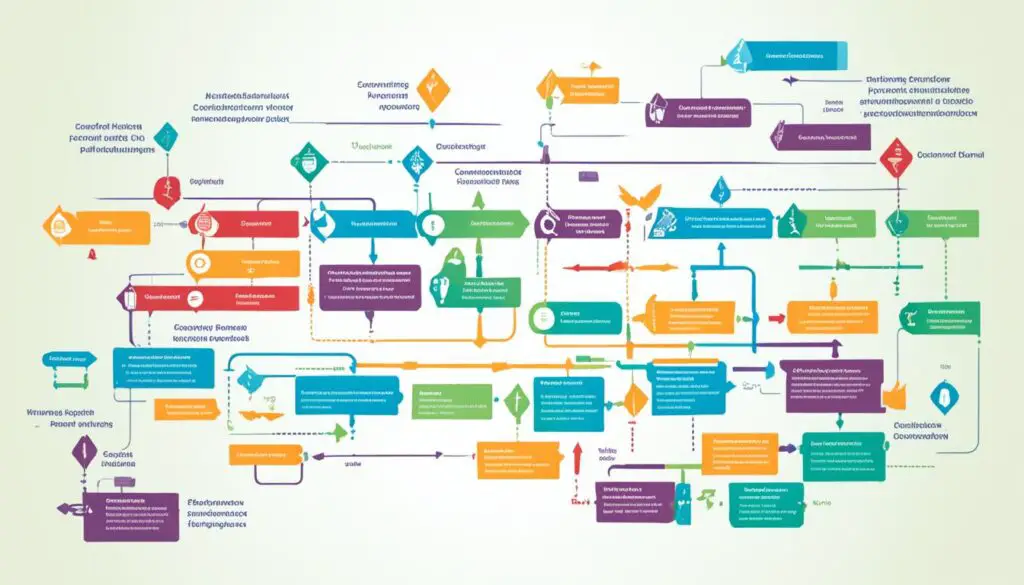
Navigating Early Education Funding: A Guide for Programs and Practitioners
Hello, and welcome to our comprehensive guide on early education funding. In this article, I will provide valuable insights and practical advice for programs and practitioners seeking financial support for early education initiatives. Understanding the funding options available, eligibility requirements, and the benefits of securing funding can significantly impact the success of your program.
Early education funding is a crucial aspect of ensuring quality programs for young children. Financial support allows programs to provide a nurturing environment, implement effective teaching strategies, and invest in resources that enhance the educational experience. By securing funding, you can make a lasting difference in the lives of children and their families.
Throughout this guide, I will delve into the various funding options, including grants, government funding, and private partnerships. I will outline the eligibility criteria, application process, and strategies for approaching fundraising and forming collaborations with businesses and philanthropic organizations.
It is my aim to equip you with the knowledge and tools necessary to navigate the funding landscape effectively. By understanding the importance of early education funding and exploring the available options, you can create a brighter future for the young learners in your program.
Key Takeaways:
- Understanding early education funding options is crucial for programs and practitioners.
- Grants, government funding, and private partnerships are common avenues for securing financial support.
- Investing in quality early education programs has long-term benefits for children’s development.
- Exploring grant opportunities and forming partnerships can contribute to the success of early education initiatives.
- Effective funding approaches can enhance the overall educational experience for young learners.
Understanding Early Education Funding Options
When it comes to funding early education programs, there are various options available to programs and practitioners. These options include grants, government funding, and private funding opportunities. Understanding these funding options is crucial for securing the financial support needed to provide high-quality education to young learners.
Grants and Government Funding
Grants and government funding sources can be excellent avenues for securing financial assistance for early education programs. Grants are typically offered by philanthropic organizations, non-profit entities, or government agencies with the goal of supporting educational initiatives. These grants often have specific eligibility criteria and application processes that programs and practitioners must abide by. By carefully researching and applying for grants, early education programs can access essential funding to enhance their offerings.
“Grants provide a valuable opportunity for early education programs to receive financial support and invest in the development and growth of their programs.” – Jane Smith, Early Education Advocate
Private Funding Opportunities
In addition to grants and government funding, early education programs can also explore private funding opportunities. Private funding can come in various forms, such as partnerships with businesses, collaborations with philanthropic organizations, or fundraising initiatives within the community. Establishing connections with local businesses, seeking sponsorships, or organizing fundraising events can help programs access the financial resources needed to provide quality education to young children.
Chart: Funding Options Comparison
| Funding Option | Eligibility Requirements | Application Process | Advantages |
|---|---|---|---|
| Grants | Varies based on grant provider | Application form, supporting documents | Financial support for program development |
| Government Funding | Criteria set by government agencies | Application form, budget proposals | Sustainable funding for long-term initiatives |
| Private Funding | Depends on partnership requirements | Partnership agreements, fundraising activities | Flexible funding options, community engagement |
Exploring these early education funding options – grants, government funding, and private funding – can open doors to valuable financial support for programs and practitioners. By leveraging these resources, early education programs can enhance their offerings, improve educational outcomes, and provide a solid foundation for young learners.

Benefits of Early Education Funding
Funding plays a pivotal role in early education programs, providing numerous benefits for both programs and practitioners. Investing in early education can have a long-term impact on children’s development and future success. By ensuring quality programs, early education funding contributes to enhancing the overall educational experience for young learners.
“Quality early education is essential for the cognitive, social, and emotional development of children.”
Quality early education is essential for the cognitive, social, and emotional development of children. It lays the foundation for lifelong learning and helps children build necessary skills and competencies. With early education funding, programs can offer quality curriculum, employ well-trained educators, and provide a nurturing environment that promotes holistic growth.
High-quality early education programs supported by funding create a positive and nurturing environment where children can explore, learn, and grow. Research shows that children who receive quality early education are more likely to enter school ready to learn, have higher educational attainment, and are better prepared for future academic and social challenges.
| Benefits of Early Education Funding | Explanation |
|---|---|
| Improved School Readiness | Funding helps implement quality programs that focus on school readiness, ensuring children are prepared academically, socially, and emotionally for the transition to formal education. |
| Enhanced Cognitive Development | Early education funding supports the implementation of research-based curriculum and instructional methods that stimulate children’s cognitive development and foster critical thinking skills. |
| Promotion of Social and Emotional Skills | Funding allows programs to create a supportive environment that promotes the development of social and emotional skills, including self-regulation, empathy, and healthy social interactions. |
| Long-Term Academic Success | Investing in early education leads to higher academic achievement and success throughout a child’s educational journey, setting the stage for lifelong learning. |
| Reduced Achievement Gap | Early education funding helps narrow the achievement gap between children from disadvantaged backgrounds and their peers, promoting equity and equal opportunities for all learners. |
In conclusion, early education funding offers numerous benefits that have a lasting impact on children’s development and future success. By investing in quality programs, practitioners can provide young learners with the essential skills and knowledge they need to thrive academically and socially. With continued support and strategic funding approaches, we can ensure that every child has access to a high-quality early education experience.

Conclusion
In conclusion, early education funding is essential for the provision of high-quality programs that positively impact young children’s development. By understanding the various funding options available and their associated benefits, programs and practitioners can navigate the funding landscape more effectively.
It is crucial for programs to explore grant opportunities, government funding, and private partnerships in order to secure the necessary financial support. By doing so, they can ensure the long-term success of early education initiatives and create a brighter future for our young learners.
As a guide for programs and practitioners, this comprehensive resource has shed light on the importance of early education funding and the strategies they can employ to secure financial resources. By utilizing these funding approaches, we can empower more children to access quality education and unlock their full potential.
FAQ
Can early education programs apply for grants?
Yes, early education programs are eligible to apply for grants to secure funding for their initiatives. There are various grant opportunities available from government agencies, foundations, and nonprofit organizations. Programs need to meet specific criteria and follow the application process outlined by each grant provider.
What government funding sources are available for early education programs?
Early education programs can access government funding through various avenues. One common source is state and federal funding allocated specifically for early childhood education. These funds can be used to support program expenses, infrastructure improvement, professional development, and other related costs.
How can early education programs secure private funding?
Early education programs can secure private funding through partnerships with businesses and philanthropic organizations. They can approach foundations, corporations, and individual donors to seek financial support. Building relationships with potential donors and showcasing the positive impact of the program on children’s education and development are key in attracting private funding.
What are the benefits of early education funding?
Investing in early education funding can have numerous benefits for programs and practitioners. It ensures access to high-quality resources, professional development opportunities, and support services. Funding also enables programs to enhance their curriculum, employ qualified staff, and provide a nurturing environment that promotes optimal learning and development for young children.
How can early education funding contribute to the long-term success of programs?
Early education funding plays a vital role in the long-term success of programs by creating a stable financial foundation. It allows programs to maintain and improve their facilities, invest in educational resources and materials, and attract and retain talented educators. Funding also enables programs to stay current with research and best practices, ensuring they provide a high-quality early education experience for children in their care.